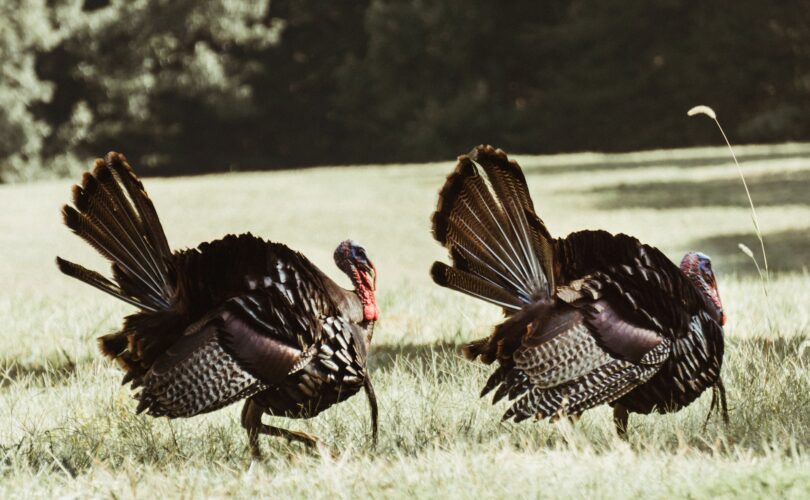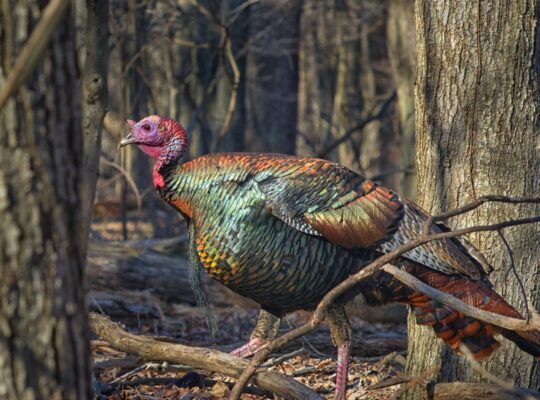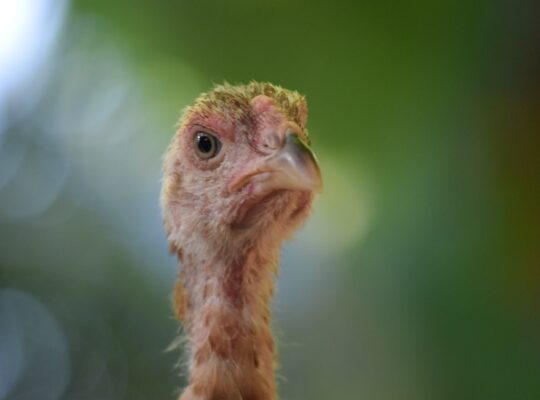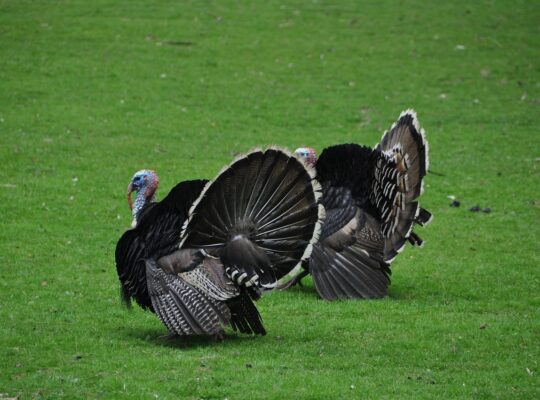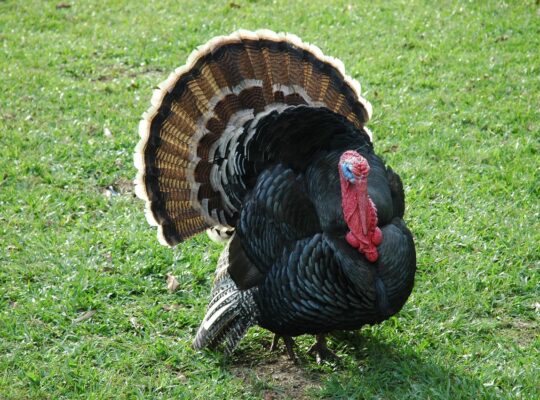Turkeys (Meleagris gallopavo) are herbivores who feast mostly on plant foods including seeds, fruits, and the odd bug. To be precise, no, turkeys are not snake eaters. There have been isolated reports of turkeys eating snakes, but this is not a typical food source for them.
Turkeys do not regard snakes as one of their preferred foods, and it is doubtful that snakes make up a significant amount of their diet. Turkeys may avoid snakes because they fear being bitten by a deadly species or being poisoned. If a turkey tries to attack a snake, it runs the risk of being hurt since certain snakes, including rattlesnakes, are known to defend themselves aggressively when attacked.
Turkeys are noted for having exceptional vision and hearing and employ these senses to escape danger, especially predators like snakes. Their eyesight and hearing are particularly keen. Turkeys have likely developed the ability to distinguish snakes’ movement and form, allowing them to avoid them automatically.
Turkeys do not eat snakes and will often steer clear of them owing to the risk that snakes provide. Turkeys are omnivores and consume a wide variety of foods, but snakes are not a common source of nutrition for them, and it is very doubtful that snakes make up a considerable portion of their diet.
Are Turkeys Carnivorous?
A natural diet for a turkey would often consist of a wide range of things, including grasses, grains, nuts, berries, insects, and even other small animals and reptiles. These birds are opportunistic feeders, meaning they will consume a wide range of foods as long as they are readily available in their natural habitat. They can destroy a wide variety of vegetables due to their solid beaks and gizzards, which assist them in breaking down and digesting rigid plant material. This enables them to eat more.
In the wild, turkeys are known to look for food in huge groups, covering a lot of ground as they go from one place to another in search of something to eat. They can adjust their eating patterns to correspond with the changing seasons and the accessibility of different types of food. To survive the colder months of the year when there are fewer opportunities to find food, turkeys have been seen eating the bark of trees and other woody plants.
The digestive tract of a turkey is genuinely unique and is well suited to the plant-based diet of a turkey. Because their gizzards are coated with tiny stones and other hard material that grinds and breaks down plant matter, it is much simpler for their digestive systems to absorb the nutrients included in plant matter. In addition to their gizzards, turkeys have another specialized organ that is a component of their digestive system called a crop.
The crop is where turkeys temporarily store food until it is digested. Because of this, they don’t have to stop what they’re doing to digest the meal right away, so they may continue eating continually throughout the day.
Turkeys are largely herbivores; however, they have been seen eating minor quantities of animal stuff, such as insects and small reptiles. This food offers them more protein and other nutrients for development and survival. Nevertheless, vegetation remains the mainstay of their diet.
In commercial agriculture, turkeys are often supplemented with vitamins and minerals and a diet consisting primarily of grains like maize and soybeans. This diet has been developed to ensure that the birds get all of the essential nutrients required for proper growth and the production of meat that is both secure and suitable for human consumption.
The turkey is not a predatory species of bird. They are classified under the group of Galliformes and consume a wide variety of plants, seeds, and insects for food. Their diet is predominantly herbivorous. They can swallow and digest complex plant material because of their robust beaks, powerful gizzards, and unique digestive system, enabling them to get all the nutrients they need for their survival and development.
Do Turkeys Keep Snakes Away?
There is no scientific evidence to back up the idea that turkeys deter snakes. While turkeys are known to eat a range of food, including insects and tiny reptiles, they are not considered very effective at repelling snakes.
Turkeys are omnivores, meaning they eat various foods, including plant debris, insects, and small animals. Their primary food, however, consists of foliage and seeds, and they have yet to be seen actively seeking out and feeding on snakes. In reality, snakes are not a favorite prey item for turkeys, and the birds are more inclined to avoid them owing to their possible risk.
Furthermore, there is no evidence that turkeys have unique adaptations or habits that would make them ideal snake deterrents. While turkeys are huge and menacing, they are not usually hostile to snakes or predators.
To conclude, turkeys are predominantly herbivorous birds that eat plant material such as seeds, fruits, and insects. They are not carnivorous and do not eat snakes regularly. While there have been occasional anecdotal instances of turkeys eating dead snakes or tiny, young snakes, this is not a typical occurrence and does not constitute a significant component of their diet.
Turkeys are not inherently violent birds and will usually avoid conflict if possible, and they are unlikely to attack or consume a dead snake if they come upon one. Turkeys are ineffective in repelling snakes.

